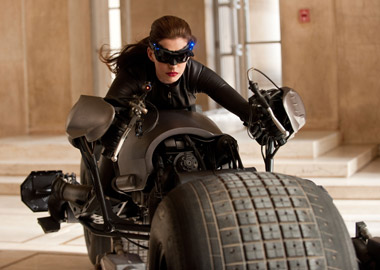When the idea of a musical crops up in our culture today, it’s often treated with that mix of curiosity and respect accorded to sideshow performers. It’s not something we see every day, and we’re not always sure how to process it; at the same time, it’s obviously quite an undertaking, and if someone wants to make a living doing it, then it’s hard not to admire the gumption they’re showing.
It wasn’t always this way. While today the musical seems almost like a novelty to many—though shows like Glee feature many musical performances, story-telling musicals are much rarer—there was a time when they were our most common cultural currency. We got our hit songs from them (Glee and its ilk get this part backward); we learned how to dance from them. One of them got Babe Ruth sold to the Yankees.
Something happened then, and I have an odd theory as to what it was, or, to be more specific, who: Clint Eastwood.
Now, it’s certainly not true that Eastwood is the man who changed everything. But there’s no denying that for several decades running, the actor has been a barometer of our nation’s masculine half in one way or another. Ask most people to name his most famous movie, and they’ll likely come back with Dirty Harry. That film—in which Eastwood’s rogue cop and his enormous weapon take on a San Francisco serial killer—came just two years after 1969’s Paint Your Wagon, a musical Western based on Lerner and Loewe’s 1951 stage show. Eastwood sang in that, tunes with names like “Gold Fever,” and “I Talk To The Trees.” Each film made somewhere in the vicinity of $35 million at the box office—but Dirty Harry cost peanuts to make, while Paint Your Wagon never recouped its costs. What’s worse, nobody was quoting it.
And so the shift was on: our old musical obsessions had refocused on action, and especially on tales of beyond-the-law redemption, of vigilantism, on those tales where the hero and the villain both wore black hats. Much of it probably had to do with the time: Watergate, the aftermath of Kent State and the civil rights struggles, and, of course, the war in Vietnam. The musical, to my mind, never quite recovered its prior standing, and since the days of Dirty Harry—when the vigilante was at least still a cop—the lone gunman has only gotten more popular, more violent, and harder to distinguish from the men he kills.
This week, Hadley’s Cinemark Theaters screens films that encompass some of the best stories from both the genres. On Wednesday, July 25, it will host a special screening of Cabaret as part of its Classics series. Based on the writings of Christopher Isherwood, the game-changing musical is a look at Weimar-era Germany. It follows young Sally Bowles (Liza Minnelli) as she tries to forge a career as a performer in the local cabaret, and, as a sometime lover to Michael York’s expat English academic, in the face of the Nazis’ rising power. Filled with songs that call to mind the oompah of Weill and Brecht, it remains a forceful blend of dirge and dread.
Also on tap is one of the most anticipated of the lone wolves: Batman. While the theater will be showing Christopher Nolan’s new film The Dark Knight Rises all week, it will also host a special event on the night of July 19, when the theater screens all three of the director’s Batman films one after the other. Beginning with a 6:15 p.m. showing of Batman Begins, diehard fans of the caped crusader can settle in for a night’s worth of dark doings from the soulful hero, capped off with a midnight premiere of the latest film. The theater is also running a slew of specials for fans attending the marathon. Better bring your Bat-Support Pillow.
Jack Brown can be reached at cinemadope@gmail.com.



